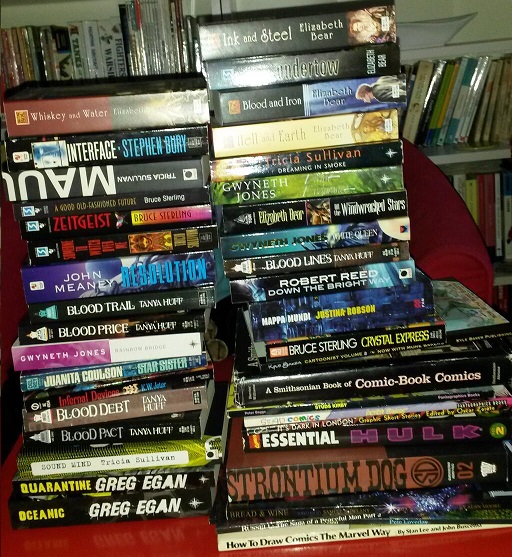From the first page Peter Bach’s story of dealing with his wife’s illness and death felt familiar. For a doctor he has a great turn of phrase: “we started to live less and fake it more”, yes, yes, exactly. That way that optimisim and the will to fight slowly drains away but you keep on keeping on, the point where that’s no longer possible and you just want to “just get on with the sorrow”. When he talks about his wife and how she “set about her business, as if taking fistfuls of pills and slathering on foot cream, intended to prevent a skin reaction from her chemotherapy, was just something anyone does in the normal course of their lives”. But it is.
That desire to shelter her from the worst realities of her cancer, that he talks about as lying, of “switching into doing mode” himself to keep some of that reality away himself, been there. I was lucky though; I didn’t have the same deep knowledge of what Sandra’s own illness meant as Bach, as a cancer doctor himself, had of his wife’s disease. I didn’t see the future.
Where Bach really nails it is grief, as tried to explain yesterday and how it pops up when you least expect it:
It turns out that Hollywood has grief and loss all wrong. The waves and spikes don’t arrive predictably in time or severity. It’s not an anniversary that brings the loss to mind, or someone else’s reminiscences, nor being in a restaurant where you once were together. It’s in the grocery aisle passing the romaine lettuce and recalling how your spouse learned to make Caesar salad, with garlic-soaked croutons, because it was the only salad you’d agree to eat. Or when you glance at a rerun in an airport departure lounge and it’s one of the episodes that aired in the midst of a winter afternoon years earlier, an afternoon that you two had passed together. Or on the rise of a full moon, because your wife, from the day you met her, used to quote from The Sheltering Sky about how few you actually see in your entire life. It’s not sobbing, collapsing, moaning grief. It’s phantom-limb pain. It aches, it throbs, there’s nothing there, and yet you never want it to go away.
This.
